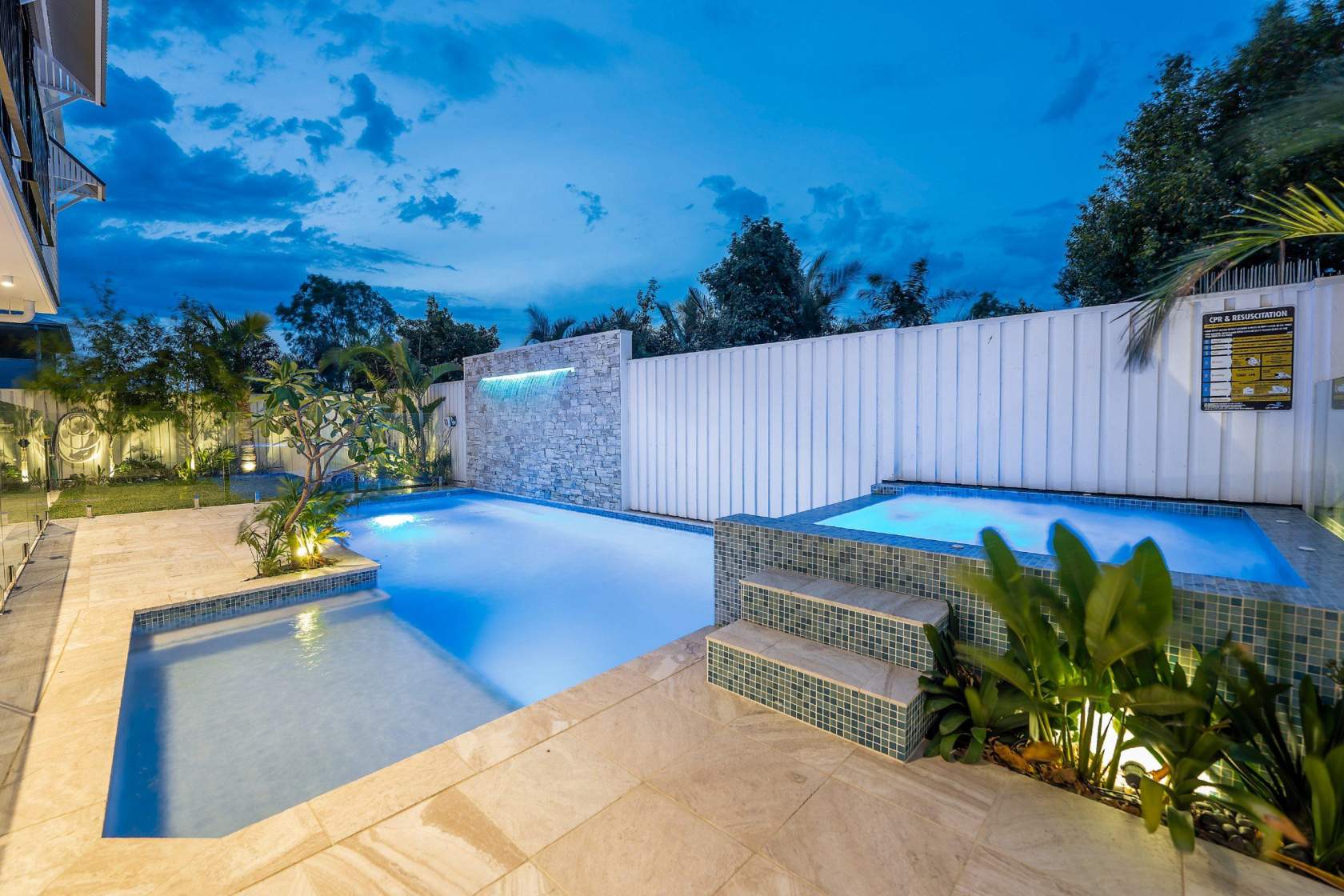

The need for speed
How a variable speed pool pump will save you
While it may not be the most exciting piece of pool equipment, the humble pump is the workhouse of your pool’s filtration system. Choosing the right one can be the difference between sparkling water and a murky pool. It can also have a serious impact on your energy usage.
Every pool needs a pump…it keeps the water circulating to other equipment so it can filtered, treated and heated. Without a functional pump, things start to go south pretty quickly, so it’s an important piece of kit to keep an eye on.
To do the job properly, a pool pump needs to be on long enough to turnover the pool water – to move it all through the filter system – once a day. The time this takes to effectively do this depends on a few things including the size of your pool and the volume of water it holds, the type of equipment installed, how often the pool is used and by how many people, as well as environmental variances. Using a conventional pump, it will generally take somewhere between six and eight hours to turnover water in the average residential pool.
Single versus variable speed
That constant use means that pool pumps won’t – and don’t – last forever. A life span of about ten to twelve years is about average, so it’s likely you will need to replace yours at some point. When it comes time to shop around, there are two main types to choose from: 1) single speed (conventional) and 2) variable speed (energy saving) varieties. No prizes for guessing what the names indicate.
The first thing you’ll notice when comparing products is that single speed pumps tend to be a little cheaper than variable speed options. This may make them a more appealing choice at face value, but it’s worth understanding the basic difference between the two and the impact this has on ongoing running costs.
Go with the flow
When moving water through the pool, some tasks are more effective at a higher flow rate. For example, backwashing or operating a water feature will require a higher flow rate than a standard filtration routine, which is more effective when run slowly.
Unlike a single speed pump, variable speed varieties allow the user to run the pump at a speed best suited to a specific activity. This means you don’t need to run at full throttle when a lower speed will do the job of moving water more efficiently. Most variable models come pre-programmed with a range of speeds to suit a variety of tasks. There is no hard and fast rule about what speed should be used for each activity, as the specifics of your pool will determine the best choice. Experiment with speed settings and adjust timing until you hit the perfect mix.
It's all about dollars…and sense
Needless to say – but we’ll say it anyway – a single speed pump is either on or off, regardless of the task being carried out. That means the pump is running at full speed every time it’s turned on, often using energy unnecessarily and contributing to higher power bills.
A pool pump can be one of the largest consumers of energy in the home – often coming second only to heating and air-conditioning. Opting for a pump that includes variable speed technology is an investment that should pay for itself in energy savings within a couple of years.
The quiet life
One of the most noticeable aspects of a variable speed pump is its quiet operation – mostly because it isn’t running on high for hours each day. You can also take advantage of off-peak electricity rates by running at low speeds overnight without fear of disturbing your family – or your neighbours.
Smart and certified
Variable models not only offer a range of pre-programmed speeds, many can also be scheduled to run at pre-determined times so you really don’t have to think about anything…just set and forget. Plenty of models now offer integration with pool automation systems and apps, putting complete control into the palm of your hand using only a mobile device.
Whatever option you decide on, be sure that it is Climate Care Certified. The CCC mark is your guarantee that the product you have chosen is industry-leading in terms of water and energy efficiency, noise reduction, and environmentally sustainable design. Check out the Climate Care Certified section on the poolspalife.com.au website for more information and speak with a SPASA member for guidance.
The benefits of variable speed
Pre-programmed speeds tailored to specific tasks
Take advantage of off-peak electricity with scheduling functionality
Whisper quiet operation won’t disturb the neighbours
Reduced running costs
Extended product life
